ARTICLE AD BOX

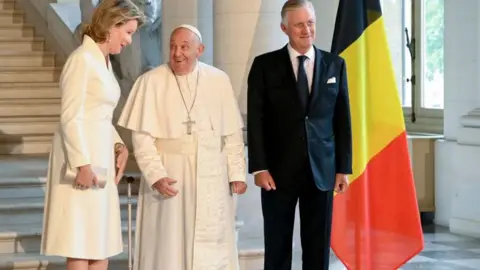 Vatican Pool/Getty Images
Vatican Pool/Getty Images
Pope Francis was welcomed to Belgium by King Philippe and Queen Mathilde
Pope Francis has been welcomed to Belgium with powerful speeches from both the prime minister and the king condemning the Catholic Church’s handling of sexual abuse.
It was some of the most direct criticism levelled at the Church by a country’s leaders on the issue during a papal visit, with both King Philippe and Alexander de Croo alluding to the pontiff’s own responsibility in bringing about justice.
The Pope acknowledged their comments, saying the Church “must be ashamed” but said it was a matter that was being dealt with “firmly and decisively”.
Late on Friday, behind closed doors, the Pope met 15 survivors of abuse by members of the Catholic Church.
At the Palace of Laeken the Pope looked on solemnly as first the king of the Belgians and then the prime minister were unusually forthright in their comments about the body that he leads.
“It has taken far too long for the cries to be heard and acknowledged. It has taken far too long to begin looking for ways to repair the irreparable,” King Philippe said of victims of Church abuse.
De Croo then talked of the damage that had been done by the hundreds of sexual abuse cases associated with the Catholic Church in Belgium. “We cannot ignore the painful wounds that exist within the Catholic faith community and wider society,” he said, before addressing Pope Francis personally.
“You are committed to justice, but there is still a long way to go,” said the prime minister. Today, words alone do not suffice. We also need concrete steps."
The Pope is visiting Belgium mainly to celebrate the 600th anniversary of two Catholic universities, but to some extent the trip has been overshadowed by long-running child abuse scandals, which have had a profound impact on the country.

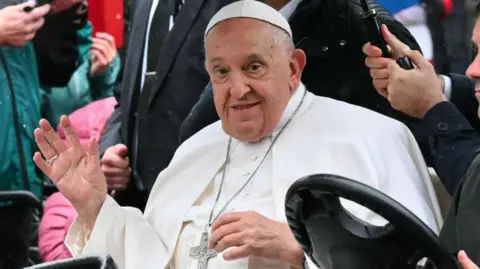 ALBERTO PIZZOLI/AFP
ALBERTO PIZZOLI/AFP
Pope Francis was given a warm welcome in the university city of Leuven
Last year, a high-profile Belgian television series Godvergeten (Godforsaken) focused on abuse perpetrated by Catholic priests in Flanders. It led to many hundreds of people contacting an abuse helpline and is believed to have contributed to a dramatic decline in church attendance.
Survivors are calling for reparations and for the Vatican to devise a universal system for compensation, and the Belgian parliament has opened investigations into historical Church abuse cover-ups.
One of the 15 survivors meeting the Pope, Aline Colpaert, told Flemish TV earlier she was looking for a concrete plan of action: “I hope he’s sincere, that he really listens and that my message touches him.”
Pope Francis applauded the speeches of both the king and prime minister, and in his own speech said clerical sexual abuse was “our shame” - “the shame that today we must confront and beg forgiveness and resolve the problem, the shame of abuse, of the abuse of minors". He compared the scourge of abuse to the slaughter of children by King Herod.
Although Pope Francis talked of the Church now taking decisive action to tackle the issue, critics contend that he could have done much more since his papacy began in 2013.
Certainly the Pope has now become adept at profusely apologising for clerical abuse and has often met survivors both at the Vatican and on foreign visits.
In fact, some trips like one to Canada in 2022, have been entirely built around survivors. In that case it was to say “sorry” to indigenous people, who as children faced family-separation and abuse at Catholic-run schools.
But it has not always been the case. In 2018, he faced a wave of criticism for his vocal defence of a Chilean bishop, Juan Barros, who had been accused of covering up abuse perpetrated by a mentor of his.
Pope Francis apologised for his “grave mistakes” in handling the situation in what was something of a watershed moment in the way he handled the issue of abuse.
Since then, the Pope has made it compulsory for members of the clergy to report suspected abuse to their superiors, saying that whistleblowers must be free from intimidation – though the realities of applying this globally have proved inconsistent to say the least.
There have also been new rules whereby clergy who have committed abuse can “defrocked.” But critics have said the Pope erred too much on the side of showing “mercy” to such priests.
They point to some cases where influential members of clergy, including some who have even admitted misconduct, have either not been suspended from public ministry or not been publicly sanctioned.
At the meeting at the Vatican Embassy in Brussels, each of 15 survivors was given three minutes to address Pope Francis.
The ability to have such an opportunity cannot be underestimated, but survivor groups have long wanted such meetings to lead to far better systems being in place not just to punish those who abuse, but stop the abuse happening in the first place.

 3 months ago
17
3 months ago
17
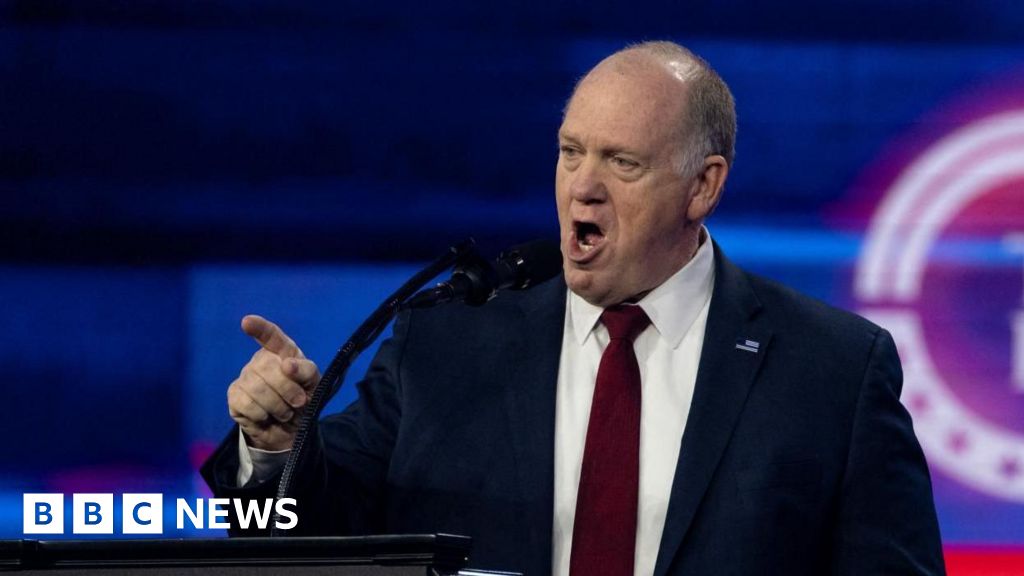
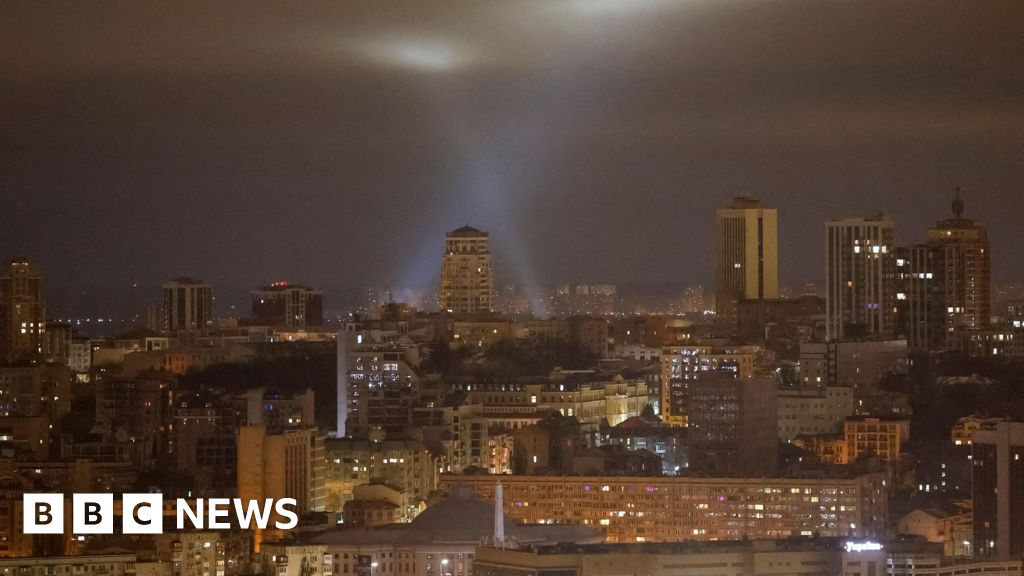
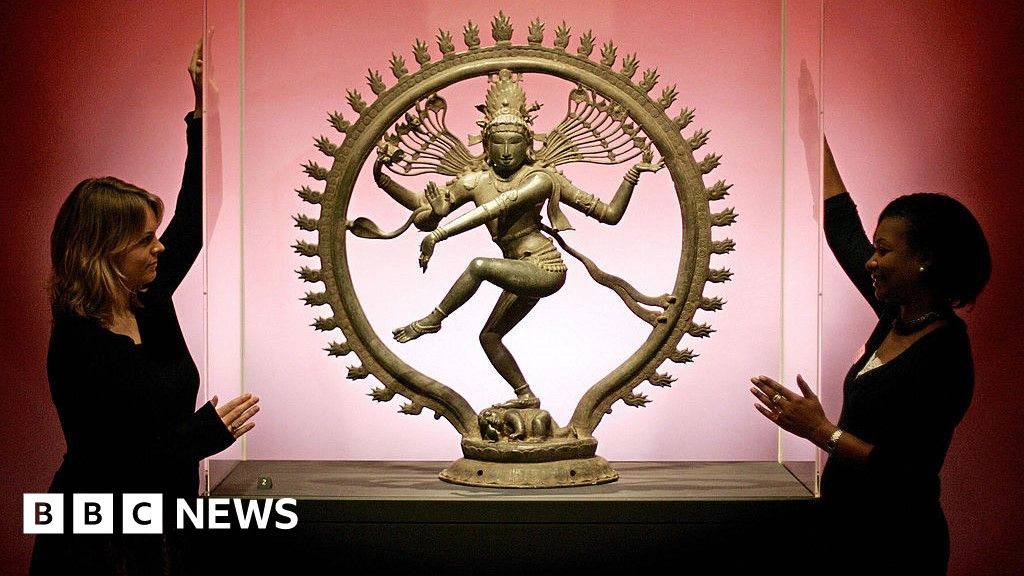





 English (US) ·
English (US) ·